The ruined newsroom, intimidated by the occupiers and people tired of fear and poverty – this is the picture seen by the editor-in-chief of a local publication called Visti Snihurivshchyny, Ihor Novikov when he returned to his native Snihurivka in the fall of 2022 after the liberation of this town by the Defense Forces of Ukraine. It was the only town in the Mykolayiv Region the russians managed to capture.
The journalist had to leave Snihurivka for Odesa at the beginning of the occupation and after the visits of the russian military. And, returning, he saw all the horror that the invaders had left behind.
“During the occupation, many residents of Snihurivka lost relatives or friends, someone suffered psychological trauma, someone’s property was destroyed,” wrote the editor in the first post-occupation issue, which was published with the support of NUJU. “Many of my compatriots left their native homes, saving themselves and their relatives. But as soon as they left their hometown, they immediately called and asked: “How are we doing in Snihurivka?” It was hard to accept all this as reality. But the people of Snihurivka did not abandon their hope and faith in liberation from the ruscists [russian occupiers] and returned home to their Ukrainian family.”
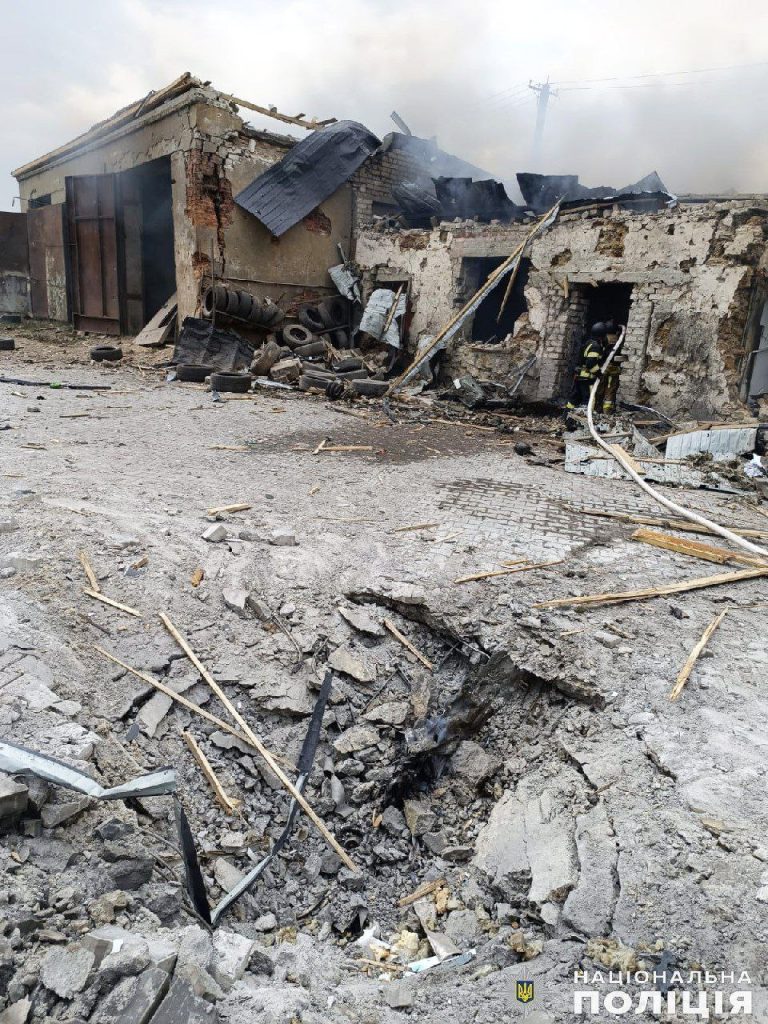
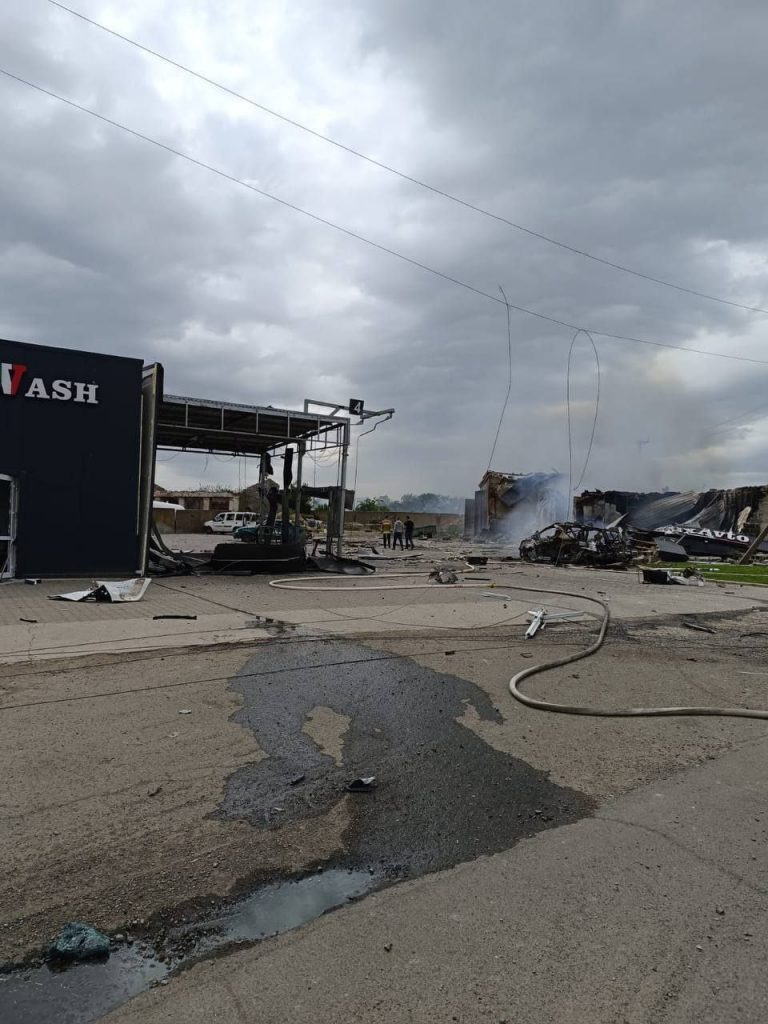
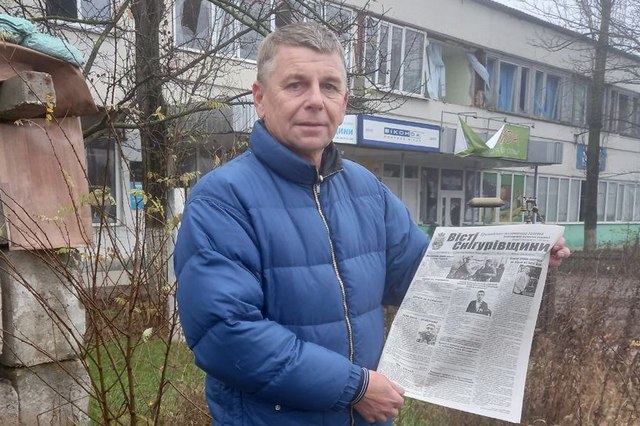
Besides, after his return, Ihor Novikov was impressed by the attitude of residents towards him, a countryman and a Ukrainian journalist:
“People hugged me as if I had liberated Snihurivka together with the military, unfolded the newspaper with tears in their eyes,” he told the NUJU press service at the time. “It was a real excitement: “Our native newspaper is back! Our newspaper! How we missed you!” You know, such moments are worth living and working for.”
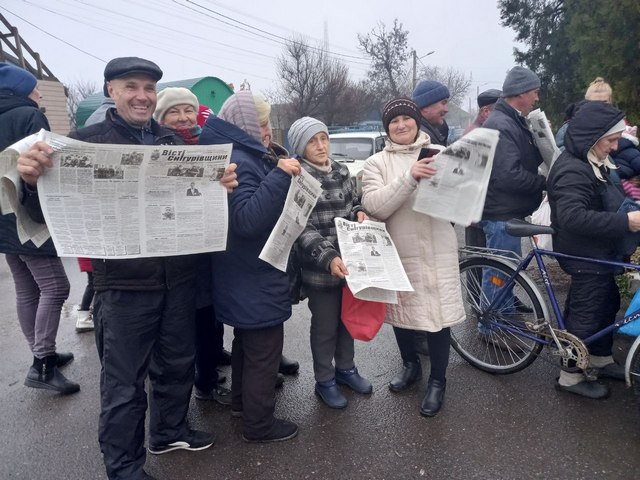
Today, when a year and a half has passed since then, Ihor adds to his story:
“When I am asked about the importance of the newspaper for residents of local communities, I always remember the first days and weeks after the liberation of our Snihurivka district and the neighboring left-bank part of the Kherson Region. There was no Internet, and in some villages, people did not even know how stable the front was and whether the liberation was final. Only when the Visti Snihurivshchyny newspaper came to them did they realize the Ukrainian rule had returned!
Currently, the newspaper is published three times a month on eight pages and once a month – in color. (“Before there had been no color in the history of our newspaper!” proudly says Ihor Novikov). Four employees – three journalists and a typewriter – still work remotely – the newsroom has not yet been fully restored.
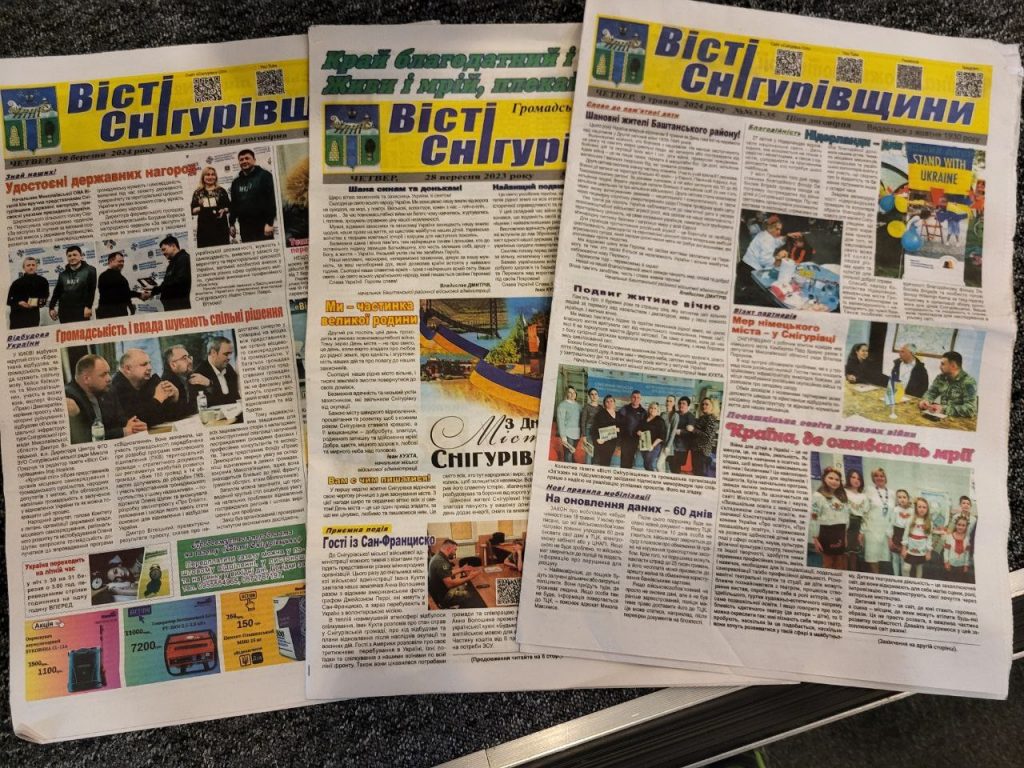
“Windows and doors were installed. But there is still no electricity in the town,” the editor says. “In addition, in conditions of constant anxiety, it is safer to work at home – there is a storage room here. And everyone knows that newsrooms in Ukraine often become targets of enemy shelling…
The newspaper is distributed under subscription and through retail outlets. There are fifteen of them in the three communities covered by the newspaper. Despite the quantitative narrowing of the audience (circulation decreased from 3,000 to approximately 1,800), which is connected with the war, it is expanding territorially – the newspaper began to be subscribed to in neighboring communities, where local publications have closed. A small part of the circulation is given free of charge to social institutions.
“After our publication, thanks to the support of the NUJU, International Institute for Regional Media and Information (IRMI, Ukraine), Fondation Hirondelle and other partners, recovered and began to stand on its feet (and, let’s remember, then our region was just liberated), we delivered the newspaper to the settlements of the Snihurivka district and distributed it there for free,” the editor says. “And from March 2023, they began to pay off debts to subscribers because we did not have the opportunity to go out for eight months. So, the newspaper reached subscribers in 2022. So last year, we paid off our debts.”
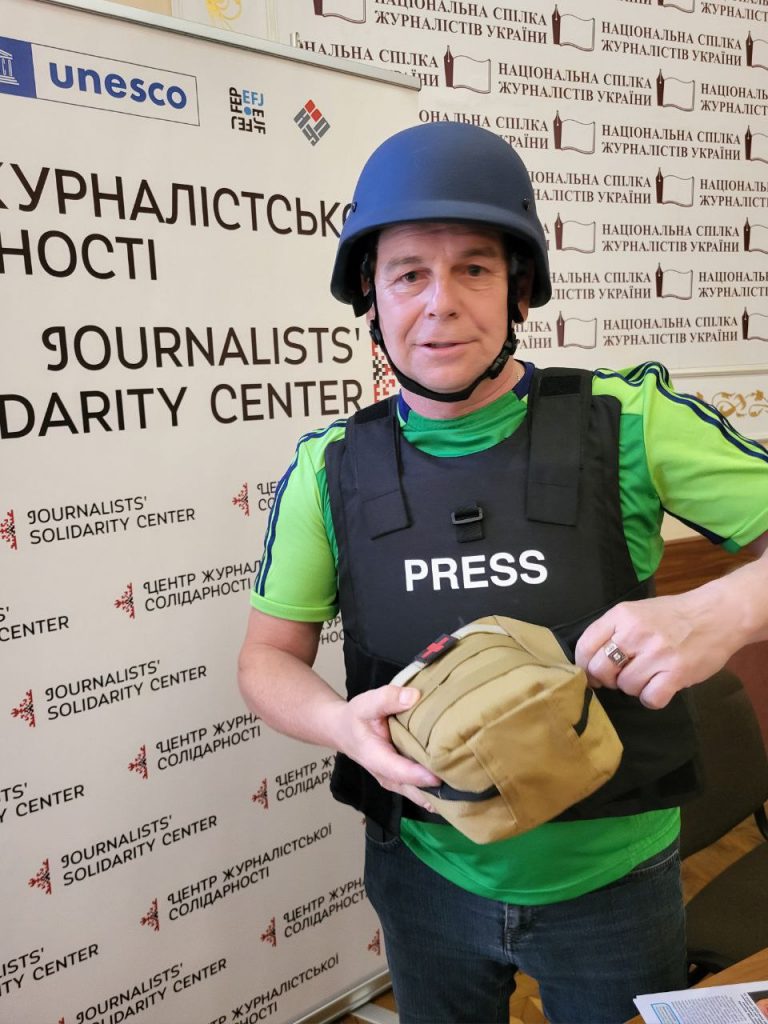
The editor complains about the work of Ukrposhta, which still does not deliver the newspaper to the address: subscribers must arrive at the time when the mobile post office arrives in the village. If you don’t have time, run to the store, where the remnants of the imported copies are usually left. And those who managed to get an issue are lucky.
“Such a service greatly “undercuts” the subscription,” says Ihor Novikov. “Almost kills it.”
However the editor emphasizes that as long as the paper newspaper still has readers, it will be published.
“For many people who do not use the Internet for various reasons, our newspaper remains the only source of local information. In addition, we try to entertain the reader in this difficult time – we publish light and interesting notes, scanwords, etc.,” says Ihor Novikov. “Today, a paper newspaper is not only a carrier of information, but also a confirmation of the Ukrainian status of our territories, a carrier of patriotism, a factor in uniting the community, and even… a souvenir! I have noticed more than once that visitors buy a newspaper in memory of Snihurivka.”
One of the ways out of the difficult economic situation in which the Ukrainian press has found itself is to work on different platforms. The Visti Snihurivshchyny newsroom not only publishes a paper newspaper, but also has a website, which is present on social networks. It is with particular pleasure that the residents of Snihurivka, who were forced to leave abroad, get information from there. Thanks to training conducted by the NUJU, IRMI, and the Fondation Hirondelle, employees of Visti Snihurivshchyny learn mobile journalism, modern management, features of certification, etc.
“On our resources, we not only tell news, give interesting stories, and publish official information, but also inform about the opening of new shops and other establishments in our settlements. Today, I look at Snihurivka with optimism. The emotional background of residents has improved, and the town authorities are updating communal equipment and improving the lives of citizens. International organizations provide assistance. Our content is based on the idea that life in the Snihurivka district continues.
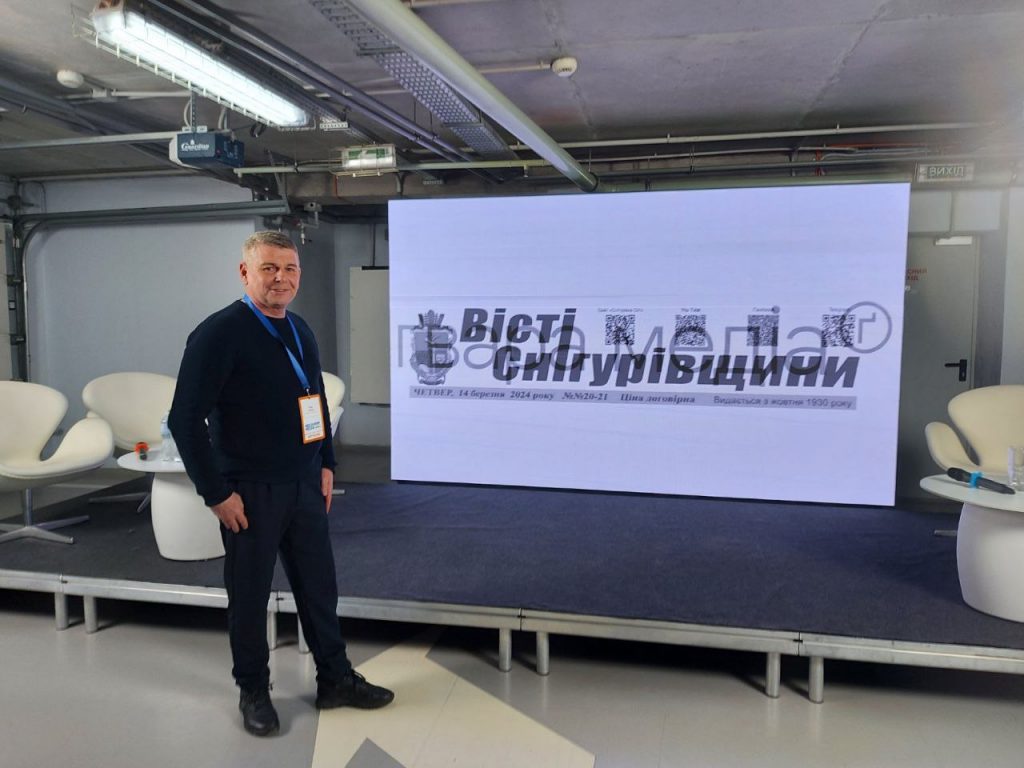
NUJU Information Service

 THE NATIONAL UNION OF
JOURNALISTS OF UKRAINE
THE NATIONAL UNION OF
JOURNALISTS OF UKRAINE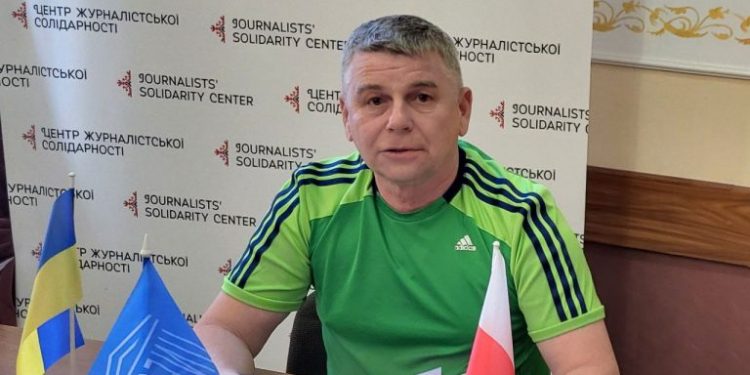
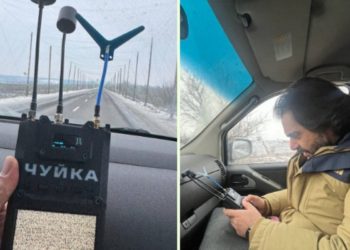
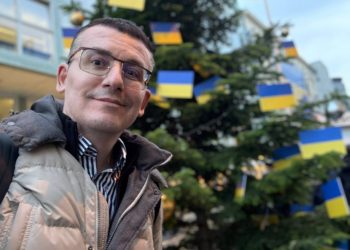














Discussion about this post